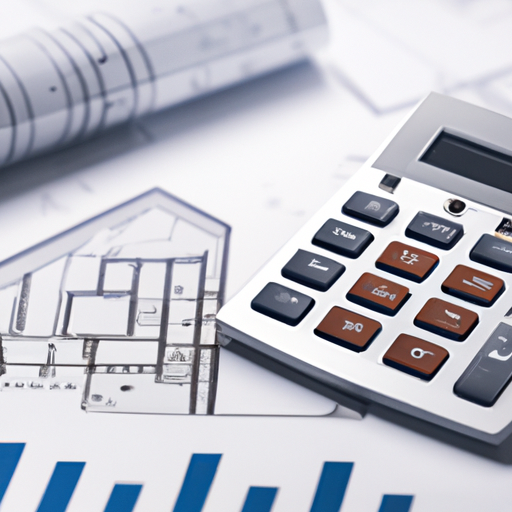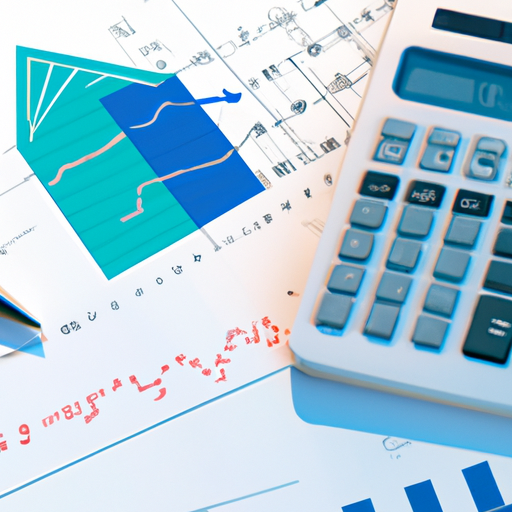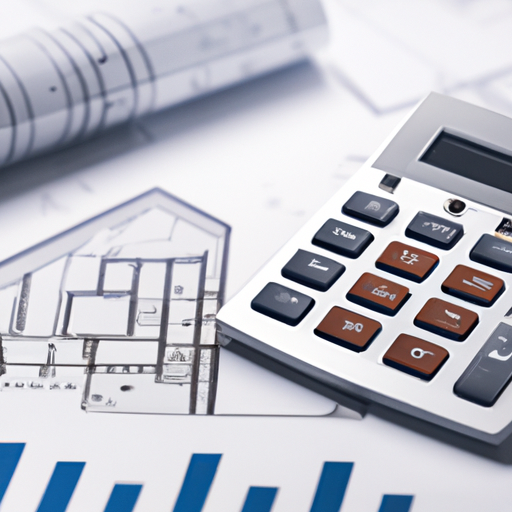Comparative Market Analysis Calculator
Have you ever wondered how much your property is worth in today’s market? Look no further than the Comparative Market Analysis Calculator. This innovative tool takes into account various factors such as location, property type, and recent sales in the area to give you an accurate estimate of your property’s value. Say goodbye to hours of research and guesswork, and hello to a quick and reliable way to determine the worth of your home. Whether you’re looking to sell, refinance, or simply curious, the Comparative Market Analysis Calculator is here to help you make informed decisions about your property.

Table of Contents
What is a Comparative Market Analysis Calculator?
A Comparative Market Analysis (CMA) calculator is a tool that helps real estate professionals determine the value of a property by comparing it to similar properties in the same market. It allows you to analyze current market trends and make informed decisions when buying or selling a property.
Benefits of Using a Comparative Market Analysis Calculator
using a CMA calculator offers numerous benefits for both buyers and sellers in the real estate market. Here are some of the key advantages:
Accurate Valuations: A CMA calculator uses real-time market data to generate accurate valuations for properties. By analyzing the recent sales of comparable properties, you can determine the fair market value of a property and avoid overpaying or underselling.
Informed Decision-Making: With the help of a CMA calculator, you can make informed decisions when buying or selling a property. It provides you with a comprehensive understanding of the market conditions, allowing you to determine the optimal pricing strategy.
Competitive Advantage: By utilizing a CMA calculator, you gain a competitive advantage in the market. Whether you are a buyer or a seller, having access to up-to-date market information enables you to negotiate better deals and achieve your desired outcomes.
Time and Cost Savings: Conducting a comparative market analysis manually can be time-consuming and expensive. However, with a CMA calculator, you can quickly gather the necessary data and generate comprehensive reports, saving both time and money.
How Does a Comparative Market Analysis Calculator Work?
A CMA calculator works by utilizing a database of real estate information to compare properties in a given market. Here is a simplified step-by-step process of how a CMA calculator works:
Data Input: You provide the CMA calculator with relevant information about the property, such as its address, size, condition, and amenities. Additionally, you may also input data about recently sold properties in the area.
Market Data Gathering: The CMA calculator collects data from various sources, including local real estate listings, public records, and multiple listing services (MLS). This data includes information about recently sold properties, their characteristics, and selling prices.
Comparative Analysis: The CMA calculator analyzes the gathered data and identifies properties that are similar to the subject property. It considers factors such as location, size, number of bedrooms and bathrooms, and other relevant features.
Valuation Calculation: Based on the selected comparable properties, the CMA calculator calculates the valuation of the subject property. It takes into account the recent selling prices of comparable properties, adjusting for any differences in features or condition.
Report Generation: Finally, the CMA calculator generates a comprehensive report that includes the valuation of the subject property, comparable property details, market trends, and other relevant information. This report helps buyers and sellers make informed decisions.

Key Features of a Comparative Market Analysis Calculator
Different CMA calculators may have varying features, but here are some key features to look for when choosing a CMA calculator:
Data Integration: A good CMA calculator should be able to integrate with various data sources, such as MLS and public records databases, to gather accurate and up-to-date market information.
Customization Options: Look for a CMA calculator that allows you to customize the analysis by adjusting the weightage of different factors and selecting specific comparable properties.
Graphical Representation: Visual representations, such as graphs and charts, can make it easier to understand and interpret the market data. A CMA calculator with visualizations can be more user-friendly and aid in decision-making.
Reporting Capabilities: The ability to generate comprehensive and professional reports is essential. Look for a CMA calculator that provides detailed reports with clear explanations and analysis.
Accessibility: Consider whether the CMA calculator is web-based or requires software installation. Web-based calculators offer the advantage of accessibility from any device with an internet connection.
Factors to Consider when Choosing a Comparative Market Analysis Calculator
When choosing a CMA calculator, it is essential to consider the following factors:
Accuracy: The CMA calculator should use reliable data sources and employ robust algorithms to ensure accurate valuations.
User-Friendliness: Look for a CMA calculator with an intuitive interface and easy-to-understand features. It should be user-friendly and require minimal training.
Integration: Ensure that the CMA calculator integrates with your existing tools and systems, such as CRM software or MLS databases.
Cost: Consider the cost of the CMA calculator. Some calculators may offer a free basic version with limited features, while others may require a subscription or a one-time purchase.
Support: Check if the CMA calculator offers customer support or assistance. Having access to support can be helpful if you encounter any issues or have questions about using the calculator.
Reviews and Recommendations: Read reviews and seek recommendations from other real estate professionals who have used the CMA calculator. Their insights can provide valuable information about the calculator’s performance and reliability.
Popular Comparative Market Analysis Calculators in the Market
There are several popular CMA calculators available in the market today. Some of the leading options include:
Zillow’s Zestimate: Zillow’s Zestimate is a widely used CMA calculator that provides estimates of property values. It utilizes a vast database of property information and market data to generate valuations.
Redfin’s CMA Tool: Redfin’s CMA tool is another popular option that offers comprehensive comparative market analysis reports. It provides detailed information about comparable properties and market trends.
Realtor.com’s CMA Wizard: Realtor.com’s CMA Wizard is a user-friendly tool that helps agents generate professional CMA reports. It offers customization options and integrates with MLS databases.
HouseCanary: HouseCanary is a CMA calculator that uses advanced algorithms and machine learning to generate accurate valuations. It provides detailed reports and market insights.
These are just a few examples of the many CMA calculators available in the market. It is essential to explore and compare different options to find the one that best suits your needs.
How to Use a Comparative Market Analysis Calculator
Using a CMA calculator is a relatively straightforward process. Here is a general guide on how to use a CMA calculator effectively:
Gather Property Information: Start by collecting all relevant information about the subject property, including its address, size, condition, and amenities. The more accurate and detailed the information, the more accurate the CMA results will be.
Input the Data: Enter the property information into the CMA calculator. Some calculators may also require additional data, such as recently sold properties in the area.
Customize the Analysis: If the CMA calculator allows customization, adjust the weightage of different factors or select specific comparable properties for a more precise analysis.
Generate the Report: Once you have inputted all the necessary data, instruct the CMA calculator to generate the report. Review the generated report carefully, paying attention to the valuation, comparable property details, and market insights.
Interpret the Results: Evaluate the results of the CMA report and use the information to make informed decisions. Consider factors such as market trends, pricing strategies, and negotiation tactics.
Remember that a CMA calculator is a tool to aid your decision-making process. It is essential to combine its results with your industry knowledge and expertise for the best outcomes.
Limitations of Comparative Market Analysis Calculators
While CMA calculators offer valuable insights, they do have some limitations that you should be aware of:
Lack of Human Judgment: CMA calculators rely solely on data analysis and algorithms. They do not take into account more subjective factors, such as the subjective appeal of a property or the motivations of buyers and sellers.
Data Accuracy: The accuracy of a CMA calculator largely depends on the quality and reliability of the data sources it utilizes. Inaccurate or outdated data can lead to inaccurate valuations.
Market Fluctuations: Real estate markets are dynamic and can experience rapid changes. CMA calculators may not always capture the most current market conditions, especially during volatile periods.
Unique Property Factors: While CMA calculators compare properties based on various factors, they may not consider unique features or factors that differentiate a property from others in the market.
It is crucial to use CMA calculators as a starting point for your analysis and not rely solely on their results. Supplementing the analysis with your industry knowledge and local market expertise can help overcome some of these limitations.
Tips for a Successful Comparative Market Analysis
To conduct a successful comparative market analysis, consider the following tips:
Collect Accurate Data: Ensure that you have accurate and up-to-date data about the subject property and comparable properties. Mistakes or inaccuracies in the data can result in misleading valuations.
Utilize Multiple CMA Calculators: Use multiple CMA calculators to cross-reference and validate the results. Each calculator may use different algorithms and data sources, providing a broader perspective.
Consider Recent Sales: Focus on recent sales data when selecting comparable properties. Market conditions can change quickly, and outdated data may not provide an accurate reflection of current property values.
Analyze Market Trends: Pay attention to market trends and patterns in the CMA reports. Look for changes in property values, average selling prices, and listing durations to identify market shifts.
Seek Professional Help: If you are unsure about using a CMA calculator or interpreting the results, it is advisable to seek assistance from a real estate professional. They can provide valuable insights and expertise.
Evaluate the Comparative Properties: Take a close look at the comparables used in the CMA calculator. Consider their similarities and differences to the subject property, adjusting the valuation accordingly.
Keep an Eye on Active Listings: Monitor active listings in the market to understand the competition. Properties currently on the market may influence the pricing strategy and market value of the subject property.
By following these tips, you can conduct a more accurate and insightful comparative market analysis.
Conclusion
A comparative market analysis calculator is a valuable tool for real estate professionals and individuals looking to buy or sell property. It provides accurate valuations, informs decision-making, and offers a competitive advantage in the market. When choosing a CMA calculator, consider factors such as accuracy, user-friendliness, and customization options. Remember that a CMA calculator is a tool that should be used in conjunction with your industry knowledge and local expertise. By utilizing a CMA calculator effectively and considering its limitations, you can conduct successful comparative market analyses and make informed real estate decisions.






